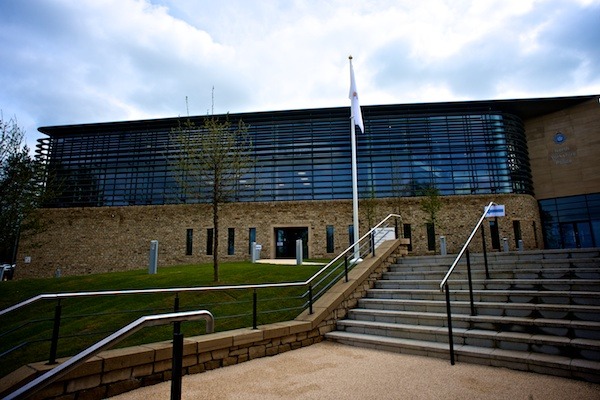North Yorkshire Police have launched an enhanced Major Crime Unit to increase its capability to investigate murder and other serious violent and sexual crimes.
The development of the Major Crime Unit into a dedicated, stand-alone team, represents a £300,000 investment and commitment to tackling serious crime in North Yorkshire by Police and Crime Commissioner, Julia Mulligan, and Chief Constable Dave Jones.
The team is headed by Detective Superintendent Dai Malyn and overseen by Detective Chief Superintendent Simon Mason, Head of Crime Operations.
It consist of 31 officers and staff with detectives, trained exhibits and disclosure staff, analytical and research capability, a Major Incident Room function, CCTV viewing room and other tools and equipment to do the job.
As well as live cases, the unit will also review unsolved “cold cases”.
Chief Constable Dave Jones said:
The new Major Crime Unit is a key development that will greatly improve and streamline the way North Yorkshire Police investigates the most serious of crimes, including murder, incidents of serious violence and sexual crimes.
In the past when such incidents occurred, extra resources had to be abstracted from the local neighbourhood policing and CID teams to support investigations, which often run over a sustained period of time.
We now have a dedicated Major Crime Unit that has the required resources to deal with serious investigations with little or no impact on day-to-day local policing.
With the support of the Police and Crime Commissioner, I am determined to build on the existing strengths of North Yorkshire Police and ensure we deliver the best possible service for our communities.
Julia Mulligan, Police and Crime Commissioner for North Yorkshire, said:
When I was first elected, North Yorkshire’s capacity to deal with major crimes was one of the very first issues raised with me. I am therefore very pleased to see the new unit being launched. It will not only significantly boost the police’s capability to deal with serious crimes, but will also lessen the impact on local neighbourhood policing by reducing the number of officers seconded out of local communities.
This development is one of a number of major investments in reducing harm from the most serious crimes, including the Sexual Assault Referral Centre (SARC) and the Multi Agency Safeguarding Hub (MASH), all of which are crucial to keeping North Yorkshire the safest county in England.
Detective Chief Superintendent Simon Mason, Head of Crime Operations, has overseen the development of the enhanced Major Crime Unit:
Thanks to the investment, we have been able to develop a dedicated and specialist Major Crime Unit that is fit-for-purpose and ready to respond quickly around the clock.
Previously, we operated a unit which relied heavily on drawing resources from local Safer Neighbourhood and CID teams when murders and other serious crimes occurred.
Although North Yorkshire and the City of York is a very safe place to live, visit and work, this ‘expand and retract’ model to investigating complex, demanding and often long-running major crimes is outdated and needed to be modernised.
Ultimately, this move is about improving our service to the public so we can secure justice for victims and their loved ones under the most traumatic of circumstances.
Detective Superintendent Dai Malyn, Head of the Major Crime Unit, said:
I feel honoured and privileged to be given the opportunity to lead the enhanced Major Crime Unit.
I have been a detective with North Yorkshire Police since the early 1990s, and this is the first time a dedicated team such as this has been assembled to investigate murder and other serious violent and sexual crimes.
The new arrangement allows us to quickly mobilise and deploy a dedicated investigative resource to an incident which is independent of other demands. This includes dealing with crimes in action such as kidnap, which require a particularly intensive and complex response.
In addition to live cases, we have capacity to review ‘cold cases’ which are historic investigations that remain unsolved. Using new forensic and investigative techniques not available at the time, we seek to progress and resolve investigations.
Also, with the dedicated team in place, this will help to develop specialist investigative skills and experience through exposure to a greater range of serious enquiries and access to centralised training services.







